Man lends his sister money for her dog’s vet bills, ‘I expected her to pay it back on the due date.’ AITA?
The OP (35M) had lent his sister (27F) $2,500 on October 1st to help with the vet bills for her dog, with an agreement that she would pay him back on November 1st. Sadly, her dog died on October 15, and she was so sorrowful. OP told her that she’d be expected to have her bill ready on the date they’d agreed, and she erupted, saying he was callous for asking for money when she was in mourning. OP restated it was about money not about her feelings and she didn’t listen and refused to pay. Now the sister is calling OP a heartless and the OP is wondering if he’s actually in wrong or not, okay?
Read for more info Reddit
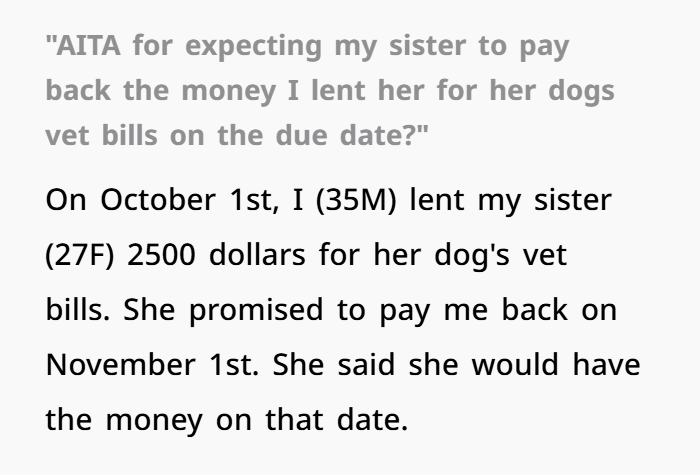


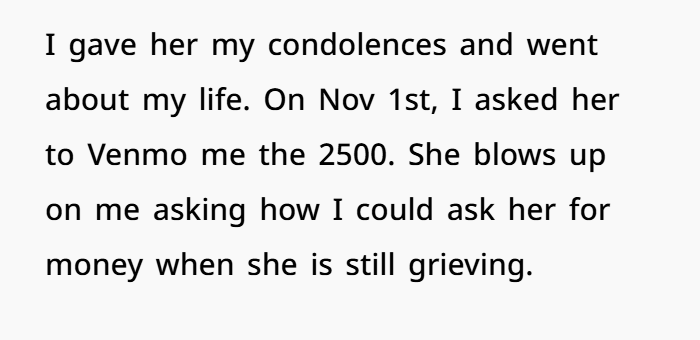
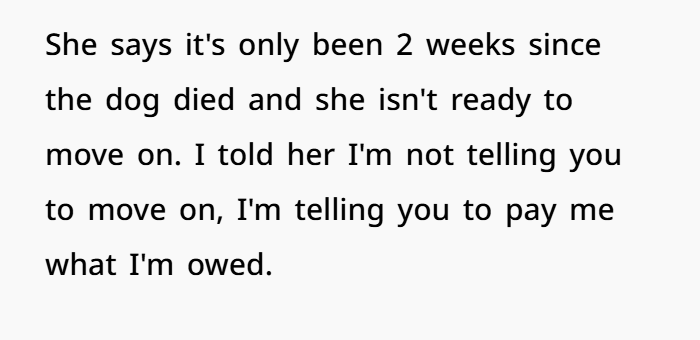



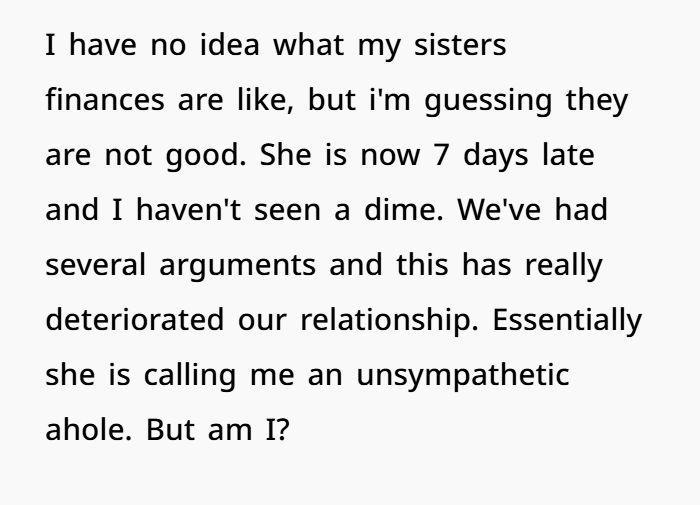
This situation brings up the often-difficult intersection of financial agreements within family relationships, particularly when grief and emotions are involved. While OP has a legally and ethically sound expectation of repayment, his sister’s grief has clouded her ability (or willingness) to uphold her promise.
1. The Financial Expectation: A Binding Agreement?
In a legal sense, OP has every right to expect the money back. A verbal agreement, especially when documented via text, is considered a binding contract in many jurisdictions. Courts have upheld informal lending agreements between family members in small claims court, provided there is documentation of the loan and its repayment terms. In this case, OP has proof that:
- The loan was given for a specific purpose.
- The sister agreed to repay it by a certain date.
- She is now refusing to fulfill her obligation.
While OP may not intend to pursue legal action, the principle of repayment still holds. Just because she’s grieving doesn’t mean the obligation disappears.
2. The Grief Factor: A Justified Delay or an Excuse?
Grief affects people in vastly different ways, and losing a beloved pet can be akin to losing a family member. Studies on grief psychology indicate that acute grief symptoms peak within the first one to two months after a loss, particularly in cases of sudden or traumatic pet loss (source: Journal of Veterinary Behavior, 2019). That being said, grief does not erase financial obligations—especially ones that were explicitly agreed upon.
It’s reasonable to offer a short grace period if the grieving person is struggling emotionally, but a refusal to acknowledge the debt at all is problematic. Her reaction suggests that she may not have been financially prepared to pay the loan back in the first place, using grief as a shield rather than a reason.
3. The Role of Family and Financial Boundaries
Many people operate under the “family money doesn’t need repayment” mentality, which can lead to tension when a lender expects to be paid back. If OP’s sister assumed that he would “let it slide” due to emotional circumstances, she may now see him as cold-hearted rather than just financially responsible.
This is a classic boundaries issue—OP made a financial arrangement, and his sister has now tried to emotionally manipulate the situation to avoid responsibility. Given that their mother gifted her $2,000, it’s unclear why she hasn’t at least made a partial payment. This suggests either poor financial planning or an entitlement mindset that family loans should be more flexible.
4. What Should OP Do Now?
- Firm but Understanding Approach: OP could acknowledge her grief while reaffirming the financial commitment, e.g., “I know you’re still hurting, and I’m not rushing you to ‘move on.’ But this was a loan, and I need clarity on when I can expect repayment.”
- Setting a New Deadline: If she truly can’t afford it now, OP could propose a structured repayment plan rather than demanding the full sum immediately. This allows her to save face while still fulfilling her responsibility.
- Recognizing the Risk of Non-Payment: If she continues avoiding the issue, OP may have to accept that the money is likely gone and decide whether it’s worth damaging the relationship further to pursue repayment.
Here’s what top commenters had to say about this one:




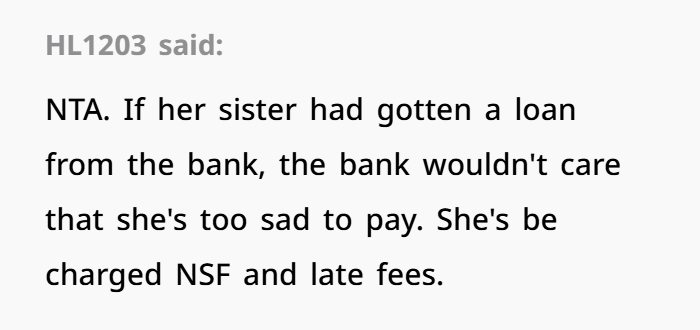

It was very straightforward, OP is not wrong in expecting repayment. Although grief is human, it does not absolve you of having to pay off money. The sister is likely hiding behind her emotive state either because she is unable to pay and/or because she is assuming a sense of familial privilege. OP is certainly justified in the expectation even though grace period may be allowed.

